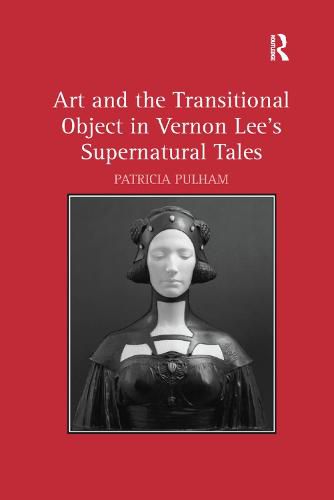Readings Newsletter
Become a Readings Member to make your shopping experience even easier.
Sign in or sign up for free!
You’re not far away from qualifying for FREE standard shipping within Australia
You’ve qualified for FREE standard shipping within Australia
The cart is loading…






In her persuasively argued study, Patricia Pulham astutely combines psychoanalytic theory with socio-historical criticism to examine a selection of fantastic tales by the female aesthete and intellectual Vernon Lee (Violet Paget, 1856-1935). Lee’s own definition of the supernatural in the preface to Hauntings questions the nature of the ‘genuine ghost’, and argues that this figure is not found in the Society of Psychical Research but in our own psyches, where it functions as a mediator between past and present. Using D.W. Winnicott’s ‘transitional object’ theory, which maintains that adults transfer their childhood engagement with toys to art and cultural artifacts, Pulham argues that the prevalence of the past in Lee’s tales signifies not only an historical but a psychic past. Thus the ‘ghosts’ that haunt Lee’s supernatural fiction, as well as her aesthetic, psychological, and historical writings, held complex meanings for her that were fundamental to her intellectual development and allowed her to explore alternative identities that permit the expression of transgressive sexualities.
$9.00 standard shipping within Australia
FREE standard shipping within Australia for orders over $100.00
Express & International shipping calculated at checkout
In her persuasively argued study, Patricia Pulham astutely combines psychoanalytic theory with socio-historical criticism to examine a selection of fantastic tales by the female aesthete and intellectual Vernon Lee (Violet Paget, 1856-1935). Lee’s own definition of the supernatural in the preface to Hauntings questions the nature of the ‘genuine ghost’, and argues that this figure is not found in the Society of Psychical Research but in our own psyches, where it functions as a mediator between past and present. Using D.W. Winnicott’s ‘transitional object’ theory, which maintains that adults transfer their childhood engagement with toys to art and cultural artifacts, Pulham argues that the prevalence of the past in Lee’s tales signifies not only an historical but a psychic past. Thus the ‘ghosts’ that haunt Lee’s supernatural fiction, as well as her aesthetic, psychological, and historical writings, held complex meanings for her that were fundamental to her intellectual development and allowed her to explore alternative identities that permit the expression of transgressive sexualities.